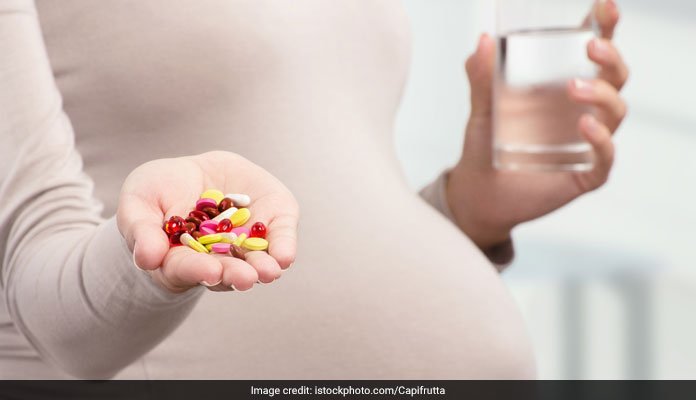Beware would-be mommies! An episode of fever or flu during pregnancy is noted to raise the risk of autism by 40% in children.

Women who took acetaminophen during fever are less likely to have a child later diagnosed with autism
HIGHLIGHTS
- Autism spectrum disorder is a group of developmental disorders.
- Fever during the second trimester raised the risk of Autism by 40%.
- It also depends on the way the immune system responds to fever.
Some people are mildly impaired by their symptoms, while others are severely disabled. According to the Centre of Disease Control and Prevention (CDC) around 1 in 68 children has been identified with some form of ASD. There are 10% children who suffer from ASD in India with 1-1.5% or 1 in 66 children between ages 2 and 9.
The study led by the Mailman School of Public Health at Columbia University in New York City, found that the risk of Autism increased in line with the number of fevers and flu reported after 12 weeks of gestation, rising to 300 percent higher risk with reports of three or more fevers.
Hornig, who is also an associate professor of epidemiology said, "We were interested in trying to understand the role of fever because of prior reports with respect to fever, but there were not many. And there had also been many suggestions over the years that various types of infections in mothers during pregnancy had been associated with autism outcomes."
Researchers found that out of 15,701 Norwegian children whose mothers said they had suffered from fevers during pregnancy between 1999 to 2009, 583 of them were diagnosed with autism. That's 3%. Blood samples were collected at mid-pregnancy and at birth to explore the possible role of specific infectious agents and the contribution of distinctive patterns of immune response among mothers and children to understand the mechanisms creating the vulnerability.
"We had maternal reports of fever in 4-week intervals throughout the entire pregnancy and we were able to link these data to the autism data we had collected through various methods and also through a patient registry," said Dr. Mady Hornig. The information was gathered during the pregnancies and shortly after birth, so the mothers' "recall bias" was minimized.
An episode of fever during the second trimester (4th through 6th month of pregnancy) was noted to raise the risk of autism by 40 percent. Several episodes of fever after 12th week of pregnancy (in the second trimester) may raise the risk of autism by three fold.
Must read: New Brain Scan Can Now Detect Autism In Infants As Old As 6 Months.
Women who took acetaminophen to lower their fevers were less likely to have a child later diagnosed with autism, although it's too early to say whether the acetaminophen, the active ingredient in Tylenol lowered the risk. None of the women who took ibuprofen had children with autism but so few women took ibuprofen that it's hard to say what the effect was, the researchers noted.
Columbia's Dr. Ian Lipkin believes it may be the fever or some other aspect of the body's inflammatory response to an infection that may be damaging the brain of the fetus. In the journal Molecular Psychiatry, the researcher's findings support the theory that infection in pregnancy and the way in which the immune system responds to it may disrupt the fetus's brain development and results in some cases of autism. It may be the inflammatory cytokines found in that samples of amniotic fluid and mothers' blood which are a type of molecule that immune cells release during inflammation cross the placenta and affect the developing brain of the fetus.
Maternal responses to infection, therefore, including the timing of fever episodes relative to fetal brain development and measures to mitigate fever, may influence risk of ASD.
Still, the study didn't prove that a fever during pregnancy causes autism, and the majority of children whose moms have a fever during pregnancy will not have autism, added Hornig
"We don't want to be alarmist, but certainly we want to know the best way to manage fever should it occur and future research will look at ways to better prevent prenatal infections and "draw more solid conclusions and interpretations about what the relationship of fever is to autism," Hornig said.
(With Inputs from ANI)
DoctorNDTV is the one stop site for all your health needs providing the most credible health information, health news and tips with expert advice on healthy living, diet plans, informative videos etc. You can get the most relevant and accurate info you need about health problems like diabetes, cancer, pregnancy, HIV and AIDS, weight loss and many other lifestyle diseases. We have a panel of over 350 experts who help us develop content by giving their valuable inputs and bringing to us the latest in the world of healthcare.














